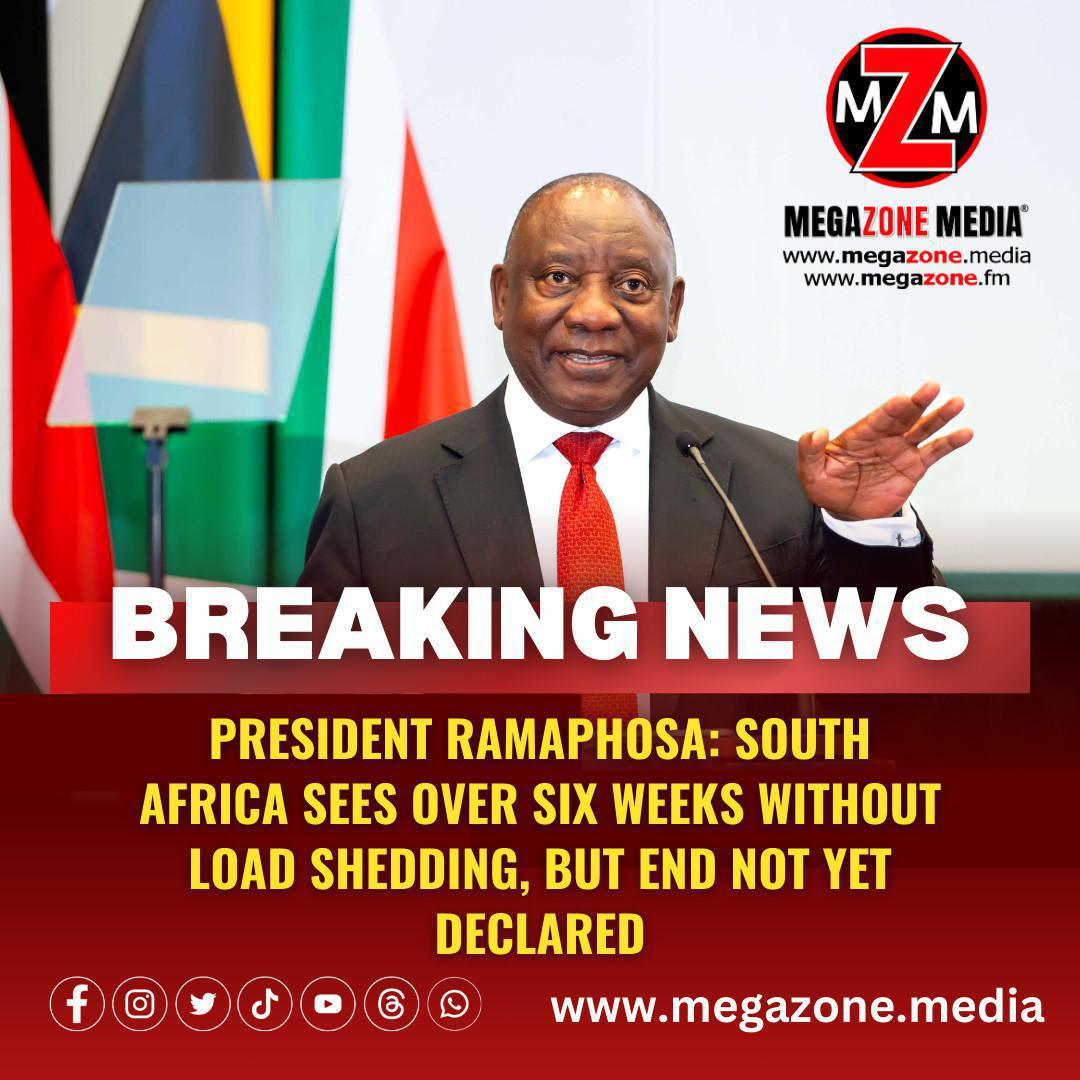President Cyril Ramaphosa stated that the Energy Action Plan, announced in 2022, is yielding positive results as South Africa has experienced over six weeks without load shedding. In his weekly letter published on Monday morning, Ramaphosa emphasized that it is premature to declare an end to load shedding.
"The sustained improvement in Eskom’s power station performance, along with the additional generation capacity added to our energy system, gives us hope that the end of load shedding is near. A renewed focus on maintenance by Eskom and the return to service of several units are yielding results. Unplanned outages have decreased by 9% between April 2023 and March 2024, adding the equivalent of 4,400MW of capacity to our national grid.
"Better maintenance and reliability of power stations have increased the Energy Availability Factor (EAF) above 60% since April, compared to 53% during the same period last year."
Ramaphosa noted that the stabilization in electricity availability and the decrease in breakdowns indicate an improvement in plant performance.
"Despite the evidence, some claim that reduced load shedding is a political maneuver before the elections. However, Eskom is using peaking plants at a lower rate than in previous years. For instance, last month, Eskom spent over half as much on diesel as it did in April 2023.
"Another contributing factor to the reduction in load shedding is the success in adding new generation capacity, mainly from renewable energy sources. Removing the licensing threshold for new power generation projects has attracted significant private investment in the energy sector."
The President mentioned a pipeline of more than 130 private energy projects, representing over 22,500 MW of new capacity, with some already connecting to the grid.
"By November last year, the capacity of rooftop solar had exceeded 5,000 MW, more than doubling in just twelve months. This has eased pressure on the national grid. More bid windows have been released for new capacity from solar, wind, gas, and battery storage, with over 10,000 MW currently in procurement through public programs.
"The reduction in load shedding is attributed to a combination of factors, including fixing Eskom, unlocking private investment in energy generation, accelerating the procurement of new capacity, and supporting rooftop solar.
"We have initiated fundamental reforms in the energy sector to ensure a future without load shedding."
However, Ramaphosa cautioned that these measures do not signify the end of load shedding.
"The Electricity Regulation Amendment Bill, tabled in Parliament last year, will establish a competitive energy market in South Africa for the first time, encouraging investment and reducing electricity prices. We are also expanding our transmission network to accommodate renewable energy, with plans to build over 14,000 km of new transmission lines across the country.
"The risk of load shedding remains. Therefore, we must all continue to use electricity sparingly and pay for the electricity we use."


